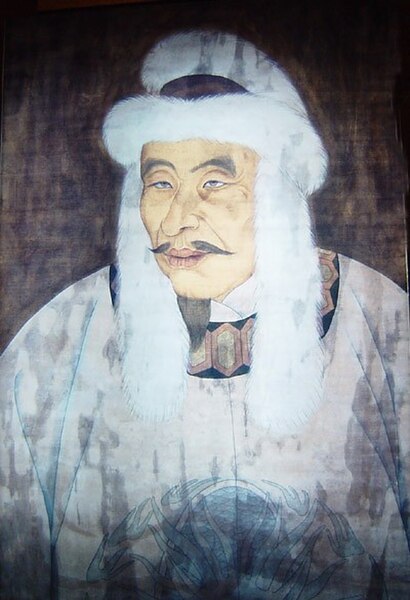Emperor Taizu of Jin, personal name Aguda, sinicised name Min, was the founder and first emperor of the Jurchen-led Jin dynasty of China. He was originally the chieftain of the Wanyan tribe, the most dominant among the Jurchen tribes which were subjects of the Khitan-led Liao dynasty. Starting in 1114, Aguda united the Jurchen tribes under his rule and rebelled against the Liao dynasty. A year later, he declared himself emperor and established the Jin dynasty. By the time of his death, the Jin dynasty had conquered most of the Liao dynasty's territories and emerged as a major power in northern China. In 1145, he was posthumously honoured with the temple name Taizu by his descendant Emperor Xizong.
Emperor Taizu of Jin
Jurchen is a term used to collectively describe a number of East Asian Tungusic-speaking people. They lived in northeastern China, also known as Manchuria, before the 18th century. The Jurchens were renamed Manchus in 1635 by Hong Taiji. Different Jurchen groups lived as hunter-gatherers, pastoralist semi-nomads, or sedentary agriculturists. Generally lacking a central authority, and having little communication with each other, many Jurchen groups fell under the influence of neighbouring dynasties, their chiefs paying tribute and holding nominal posts as effectively hereditary commanders of border guards.
Siberians capturing a reindeer
A Jurchen man hunting from his horse, from a 15th-century ink and color painting on silk.
Qilang people (奇楞). Huang Qing Zhigong Tu, 1769
Bixi from the grave of a 12th-century Jurchen leader in today's Ussuriysk





